The government has reached a 12-year deal that will grant fishing access for EU boats into British waters, with ministers also having nailed down a reduction in checks on food exports to the bloc in return.
Ministers also secured a deal to reduce sanitary and phytosanitary (SPS) checks on plant and animal goods headed to the EU, also known as the long-awaited vet deal, that will “lower food prices and increase choice on supermarket shelves”, it said in a statement.
The SPS deal will bring EU and UK food standards closer together, meaning there will be no need for most physical checks at the borders, which will reduce trade friction and costs for agrifood businesses.
This is what industry leaders and some of grocery’s key bodies think of the moves:
Agriculture & Horticulture Development Board
Sarah Baker, head of economics:
“Since leaving the EU, added trade friction has disproportionately impacted SME export businesses most notably with the amount of red tape creating challenges around groupage. Export Health Certificate (EHC) cost has also added an extra financial burden across the industry.
“With recent headlines highlighting trade arrangements with the US, it remains important not to overlook the EU market. The EU market is and will remain our key trading partner due to our proximity to market and established supply chains. Any agreement that lowers trade friction, smoothing trade between the UK and the EU would be good news for UK agricultural exporters.”
British Meat Processors Association
“This government has managed to achieve what the previous government promised us originally but didn’t deliver.
“The joint declaration, whilst in the early stages, promises to bring back all the trade that simply ceased after Brexit due to crippling red tape and tens of millions of extra costs.
“A common misunderstanding is that an SPS agreement will mean Britain becomes a ‘rule taker’. In reality, we must comply with the rules of any of our trading partners if we want to export to them – just like America must comply with British rules if they want to send us their products. This means we have been aligned with EU rules and standards all along. The difference this new deal will make is that Britain, unlike their other third country trading partners, will benefit from true, unfettered access to their market and massively reduced trade friction. It will boost trade and make us more competitive.”

British Retail Consortium
Helen Dickinson, CEO:
“The removal of veterinary checks is good news for retailers and consumers alike. It will help keep costs down and create greater security in retail supply chains, ensuring the ongoing availability of key food imports for British shoppers.
“As well as supporting growth for exporters to the UK’s biggest export market, retailers operating in the EU will also see a huge reduction in the unnecessary processes, paperwork and administrative burden when exporting goods, supporting our competitiveness abroad. The industry remains keen to see the government and the EU continue to develop our future trading relationship for the benefit of consumers both in the UK and in Europe and the next steps should include greater alignment on environmental and product safety standards.”

Cold Chain Federation
Phil Pluck, CEO:
“A relaxation of veterinary certification is a very welcome move for the cold chain sector and for food producers. If this transition is handled efficiently, then it bodes well for a journey back to common borders on food movement. For 40 years food movement across the channel between the UK and mainland EU has been efficient, cost-effective and safe.
“The current arrangements have not improved food safety but have created a massive administrative and cost increase. This seems like a good first step towards a more pragmatic and shared food movement protocol.”
Country Land & Business Association
Victoria Vyvyan, president:
“Is a bad deal better than no deal? It depends who pays the price. We sympathise with the fishing industry, as the government’s concession will have a significant impact on fishing and coastal communities, as well as the marine environment, for many years to come.
“Although the EU is a key market for UK produce, and lower export costs would help make our goods more competitive for European consumers, signing up to allow the European Court of Justice to impose decisions affecting our goods is an unnecessary surrender of control. We need immediate reassurance that the UK will have a voice in the decision-making process in the Sanitary and Phytosanitary Agreement.
“Cutting red tape on food exports and plant and animal health for trade sounds positive if unlikely, but tying us to an agreement that involves European Court of Justice oversight is deeply concerning and could hinder our ability to strike future trade deals with other countries.”
Dairy UK
Judith Bryans, CEO:
”As our largest and oldest trading partner, unencumbered trade with the EU is incredibly valuable for the dairy and agri-food sector and the ease in administrative requirements will be very welcome for our members.
”We’re particularly pleased to see a common understanding on Sanitary and Phytosanitary (SPS) regulations, which is a critical and welcome step forward for dairy trade.”
Federation of Small Businesses
Tina McKenzie, policy chair:
“This agreement marks genuine progress by untangling the rules for small exporters of plant and animal products. If British goods can reach European markets with fewer setbacks, that marks real progress.
“For too long, small businesses have shouldered the burden of unpredictable custom rules and red tape that sap confidence and ambition.
“Today’s agreement brings us a step closer to reducing the burdens for SMEs by clearing the bottleneck at the border, trading fresh produce and more efficient supply chains.
“We also welcome conversations on business mobility and the mutual recognition of qualifications across borders, and hope that small firms are given a seat at the table as plans take shape.”
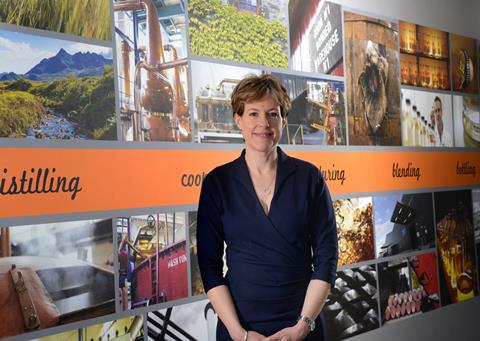
Food & Drink Federation
Karen Betts, CEO:
“Trade with the EU is incredibly important to UK food and drink manufacturers. Europe is our single biggest customer, and most of the food and drink we import – from ingredients to finished products – comes from Europe too. However, trade in both directions has become complex and challenging. UK food and drink exports to Europe have fallen by a third since 2019 and businesses continue to face challenges and delays with imports.
“We’re pleased to see today’s announcement of a much closer UK-EU trading relationship, which acknowledges our shared high standards in food and drink. A high-quality agreement will have clear benefits for consumers and businesses. However, the government must continue to work closely with industry on the detail and ensure the UK is able to influence EU decision making where this impacts British businesses and competitiveness, particularly where the UK aligns with EU rules.”
International Meat Trade Association:
“One of the few benefits of the BTOM, which we fear is lost with this agreement, is the ability of the UK to move quicker than the EU bloc, for instance in approving additional establishments in third countries. The UK has used its independence to reduce levels of ID and physical checks on certain rest of world imports, to take a more risk-based approach than the EU.
“We’re keen to understand what assessment government has made on what this would mean for our relations with third countries. Food security is national security; food regulation should not be wholly outsourced to the EU, it is important that the UK retains some material influence in this area. We must understand what the reference to ‘an appropriate United Kingdom contribution to decision-shaping’ means in practice.”
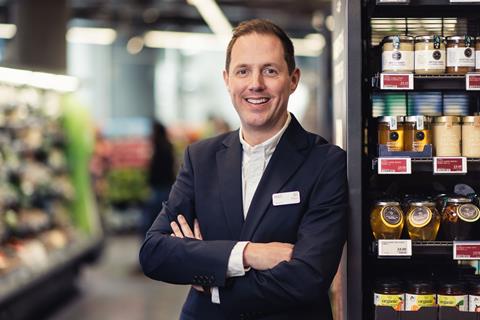
M&S Food
Alex Freudmann, managing director:
“Today’s announcement on trade from the EU-UK summit is a major step forward. An SPS agreement with the EU removes the pointless bureaucracy we face in moving our products across Great Britain, Northern Ireland and the Republic of Ireland, and ensures that we can supply the widest range of products at the best possible price to all of our customers. We’re really pleased to see this sort of pragmatic and positive move from the government.”
Northern Ireland Retail Consortium
Neil Johnston, head:
“This looks like good news for consumers and retailers in Northern Ireland. Although there is significant work to be done over the coming months, we can hopefully look forward to dismantling the burdens placed on retailers under the NI Protocol and the Windsor Framework.
“Retailers have worked hard to abide by the rules and to ensure that consumers in Northern Ireland have by and large seen little impact on the shelves of shops. This has, however, imposed a considerable workload and expense on retailers.
“We hope that the negotiations will proceed at pace and that we can move forward with a proportionate and pragmatic approach to enforcing the current regime until such time that restrictions including ‘Not for EU’ labelling can be lifted.”
UKHospitality
Kate Nicholls, CEO:
“The new agreement with the EU to remove trade barriers is positive news for hospitality businesses and will help to further increase access to high-quality, affordable food and drink for business and consumers alike.
“We’re pleased that there is a clear commitment to co-operate further on a youth experience scheme.
“These schemes are beneficial for those already working in hospitality, tourism and other cultural sectors to live and work in either the UK or EU. Not only does it provide economic benefits, but it also provides new opportunities for critical cultural exchange, which ultimately delivers richer experiences for customers.
“I urge both parties to pursue a model with maximum flexibility, and mirroring existing schemes with Australia and New Zealand is a sensible approach.”









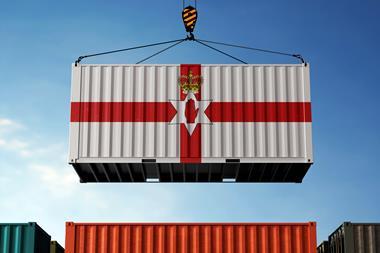
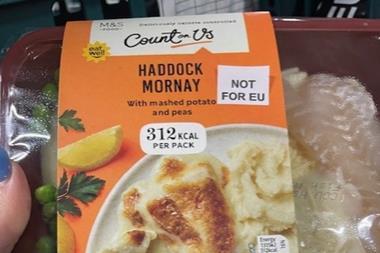
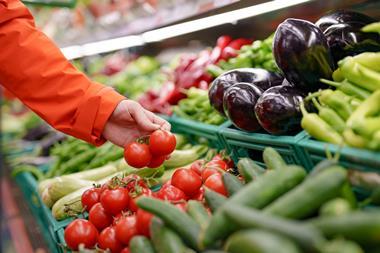
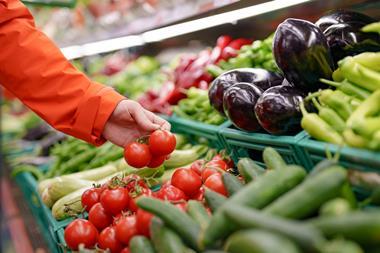
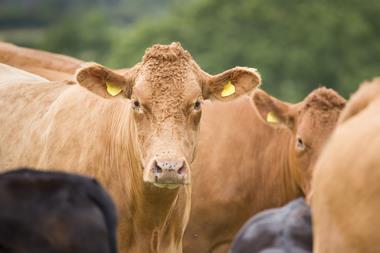






No comments yet